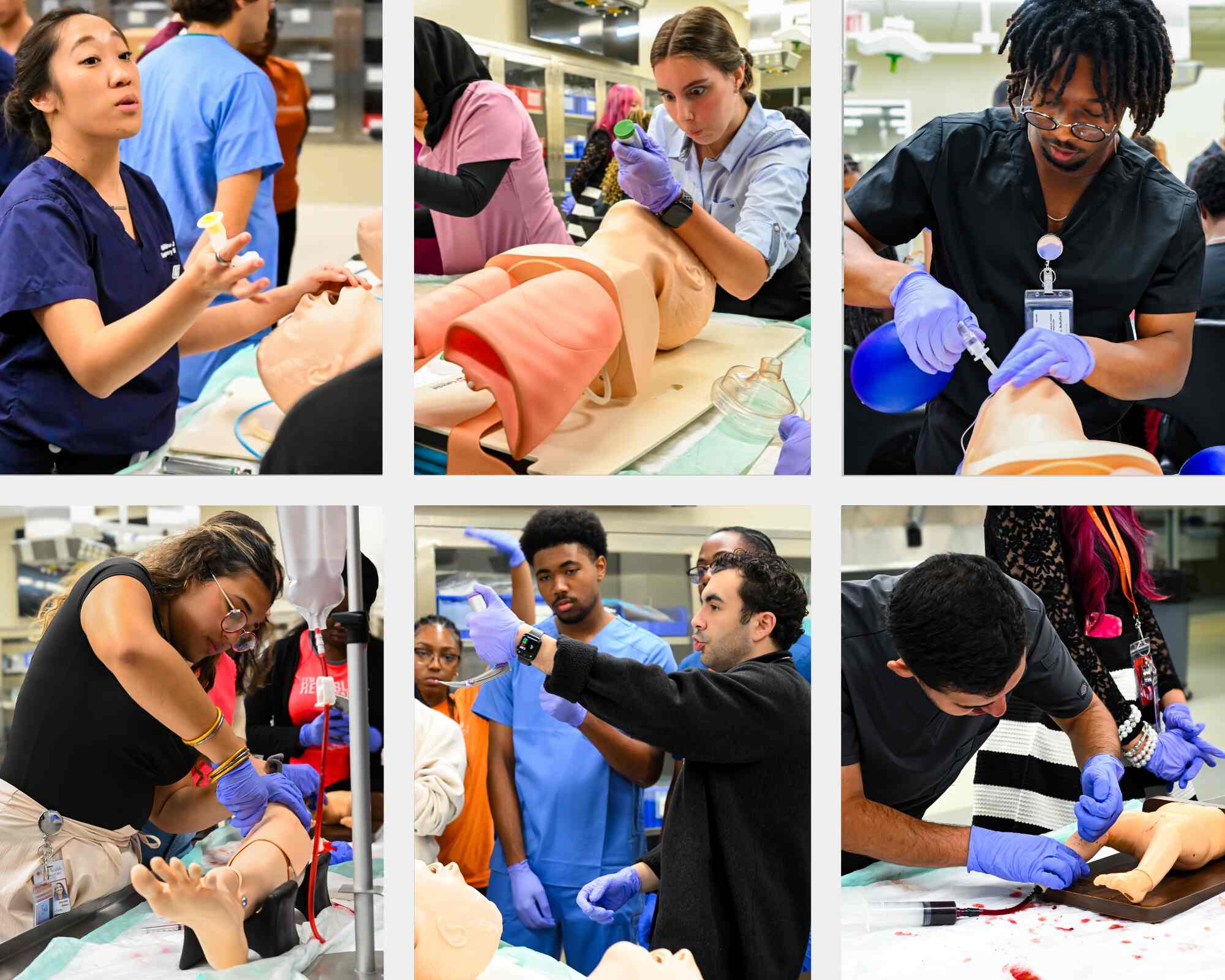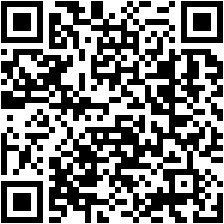Medical Simulation and Interactive Learning
Simulation-based learning is an integral part of our Emergency Medicine (EM) residency and Pediatric Emergency Medicine (PEM) fellowship training curriculum.
Sessions occur at our state of the art Surgical and Clinical Skills Center, where we use high-fidelity Laerdal adult and pediatric mannequins, along with various task trainers to encompass a variety of real-life patient encounters.

In the Skills Center, EM and PEM faculty facilitate challenging cases that allow our learners to make mistakes in a low-risk environment where their growth and potential are nurtured. All of our postgraduate learners get 2 adult and 1 pediatric simulation cases on the 2nd Thursday of the month. In addition to 2nd Thursdays, our PEM Fellows get quarterly fellow simulation sessions, while rotating senior medical students are exposed to simulation during their orientation and are also invited to our 2nd Thursday longitudinal simulation sessions.
The simulation group is working in conjunction with our medical education group on ways to teach non-technical skills using gamification. This adjustment in curriculum will enhance our learning environment and provide ample opportunities to practice skills that will be tested on the new ABEM oral boards.

The UTHealth Houston Department of Emergency Medicine also has a Mobile Simulation Training Unit (better known as the MSTU), which allows us to carry out our vision of healthcare education outside of the Skills Center and off campus. With the MSTU, we have assisted in training local EMS agencies, providing continuing medical education (CME) for Memorial Hermann Emergency Physicians and Advanced Practice Providers, and created community outreach events, such as the UTHealth Houston Saves A Life series.
Mobile Simulation Training Unit
The Mobile Simulation Training Unit (MSTU) is our educational outreach vehicle used to take simulation training on the road. The MSTU is a complete and functioning replica of the ambulances in service on Houston streets today.
This realistic, out-of-hospital simulation environment provides learners the opportunity to train in a high-fidelity, immersive experience in which they may be confronted with life-and-death patient encounters, just as they would on the back of any ambulance during a true emergency.
Medical simulation with the MSTU gives these learners – inclusive of EMS professionals, medical and nursing students, resident physicians, and hospital-based healthcare teams, the ability to practice and hone their own skills, push the boundaries of their knowledge, and even make mistakes, in efforts to maximize learning with no risk to patient safety.
With a state-of-the-art audiovisual system that is fully integrated into the MSTU, the entire encounter can be recorded and played back, which enables professional debriefing that includes immediate and actionable performance feedback.
The MSTU allows for fully customizable portable simulation delivery including but not limited to:
- Varied adult and pediatric encounters
- Advanced procedural training
- Incorporation of EMS agency protocols
- Options for in-hospital or on-scene scenarios
If you would like to request a healthcare training event, please fill out this form.
Mobile Simulation Training Unit Ribbon-Cutting Ceremony
The UTHealth Houston Mobile Simulation Training Unit was made possible through the generosity of Wyatt Ranches, the development of Frazer, Ltd, and the partnership of our Department of Emergency Medicine, the UTHealth Houston Cizik School of Nursing, UTHealth School of Public Health, and McGovern Medical School.
KRIS 6 News: Corpus Christi – Check out our Mobile Simulation Training Unit (MSTU) in Action!
Dr. Bentley Bobrow and our trusted EM crew recently traveled to South Texas (Realitos, TX) and provided a unique training experience for local EMS. Here’s a link to the story.

To get more information or schedule a meeting, contact us at [email protected].
This innovative, challenging, and progressive teaching accompanied by our state-of-the-art technology will positively impact EM professionals’ expertise, improve community engagement, and help save lives for years to come.
How to Request an Event
To request a simulation event, simply click here to complete our Typeform, or scan the OR Code below.
If you have any questions or need assistance, please contact us at [email protected].

